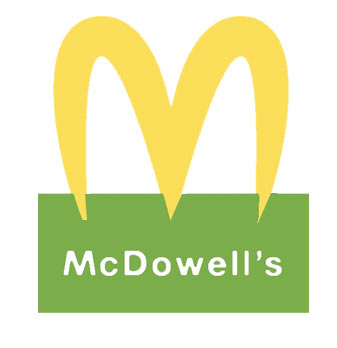 Our firm recently litigated a case in which another company admitted to infringing on the trade name of our client. A trademark is a name, symbol or other design used to identify goods or services used in commerce. An example would be “Coca-Cola” for soft drinks. To legally protect a trade name, the first requirement is generally registration with the United States Patent and Trademark Office. Registering a trademark will enable a trademark owner to legally prevent other businesses from using said name for similar goods and services. There are many requirements for registration, and our firm is experienced in registering trade names and designs on behalf of our clients, many of whom own small businesses in Westchester County and the surrounding geographic area.
Our firm recently litigated a case in which another company admitted to infringing on the trade name of our client. A trademark is a name, symbol or other design used to identify goods or services used in commerce. An example would be “Coca-Cola” for soft drinks. To legally protect a trade name, the first requirement is generally registration with the United States Patent and Trademark Office. Registering a trademark will enable a trademark owner to legally prevent other businesses from using said name for similar goods and services. There are many requirements for registration, and our firm is experienced in registering trade names and designs on behalf of our clients, many of whom own small businesses in Westchester County and the surrounding geographic area.
Once a name has been formally registered with the United States Patent and Trademark Office (“USPTO”), it is generally the job of the trademark owner (and their attorneys) to insure that another company is not infringing on that mark. Unfortunately, the USPTO is not a enforcement agency for trademark owners. Once it allows a mark to be registered, the trademark owner is generally responsible for commencing litigation against any other companies who may be infringing on the registered mark. For example, if our firm registers a trademark for “Debbie’s Deli” for restaurant services, and another deli opens in the immediate vicinity called “Debby’s Deli,” our firm would bring a trademark infringement action in the appropriate forum (usually United States District Court in White Plains), seeking an injunction against the infringing company, as well as money damages.
The general legal standard for infringement is whether an average customer would be likely to be confused into thinking the infringing name is the original protected company. If a Court finds infringement, there are several remedies that it can award. Most common would be an injunction (a Court order) against the infringing party forbidding it from continuing to use the infringing name. If the party violates the injunction, it can be held in contempt of Court.
Money damages are another remedy for trademark infringement. There are several schools of thought regarding the “true measure” of damages. One common measure would be the revenue that the company owning the trademark lost to the infringing party. This can be difficult to measure. A Court may find infringement, and order a separate hearing (generally called an “inquest”) on the issue of damages. At this hearing, the aggrieved party may present proof to the Court of its lost profits. This can be by showing the amount of profits during the infringing period, and comparing it to a non-infringing period. Of course, this is an inexact process, as certain businesses may be seasonal, and their profits may fluctuate during a period of time for reasons unrelated to the infringement. Another method of proving damages may be to use consumer research surveys to show whether business was lost to the infringing company. A representative sampling of customers may show that the infringing business took a certain percentage of customers from the trademark owner. This method, while more accurate, may prove expensive for the trademark owner, as extensive market research may be required to prove their damages. However, if the lost business is a significant amount, then the expense would be justified.
After the inquest hearing, the Court will issue a ruling awarding a specific amount of damages to the trademark owner. This ruling can then be reduced to a money judgment, which can be collected against the infringing party as any judgment would be.
Weiss & Weiss is available to all business owners who wish to protect their legal rights in their business names, logos, and goodwill.
 New York Real Estate Lawyers Blog
New York Real Estate Lawyers Blog

